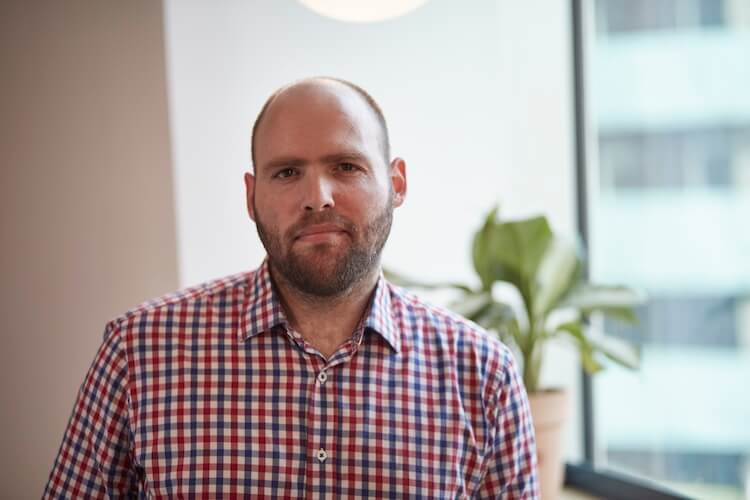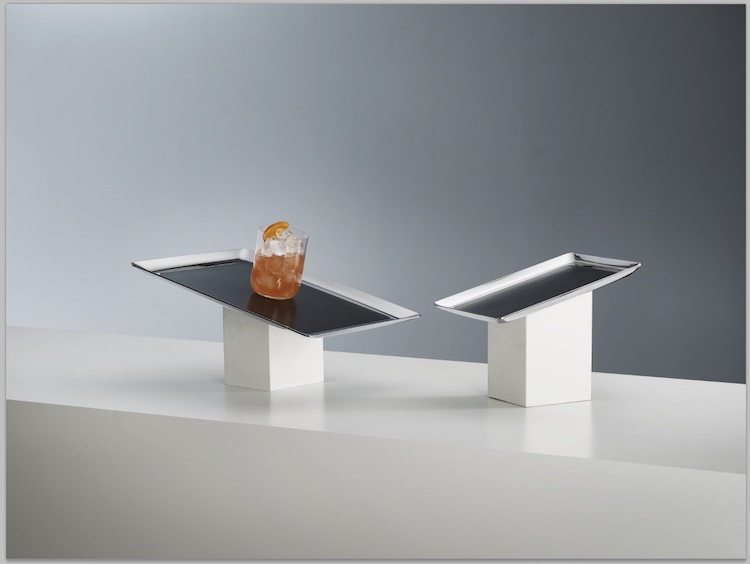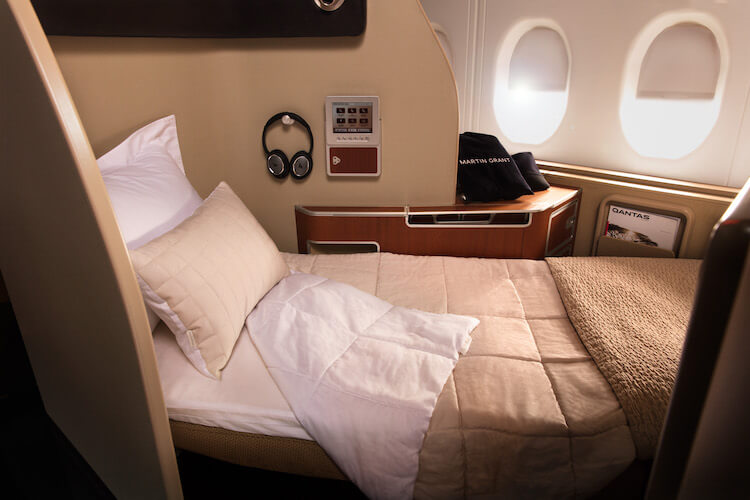Streamlining success: Watermark's rebrand

Kenny Harmel, Managing Partner at Watermark
PAX International caught up with Kenny Harmel, Managing Partner at Watermark to discuss the company's recent rebranding. From the creation of Galileo (which didn't necessarily start as you might think) to the merger with Watermark in 2016, Harmel has seen the aviation product supplier's business grow and change from the inside.
How it started
Harmel, who is half Irish and half South African, grew up in London. As a child, he spent ample time visiting extended family in South Africa. “I was fortunate enough to travel from a very young age. I’ve always been inquisitive about exploring different places, different cultures, and travelling as much as I could,” he tells PAX International. He kept travelling through his working life: from a summer in New York working on the Rudy Giuliani presidential campaign to a year in Shanghai — Harmel has stories to tell in addition to all the passport stamps.
He met his future business partner, Ian Linaker, at Durham University. At school, Harmel studied business finance and Linaker was in business management. The two became friends toward the latter half of their time at Durham and started Galileo in their spare time. When the company (originally a men’s skincare line) started gaining traction, the two knew the business was something they wanted to commit to full-time.
The pair placed the premium men’s grooming range into retail in the UK, Europe, the US and Asia. “It reached the point where, to take it to the next level, we started looking at hospitality,” Harmel says. “We didn’t want to go into the mainstream and mass market, because the risk was that you could strip the premium out of the brand.” The pair targeted hotels and airlines and were lucky enough to be selected by an airline as part of their business-class amenity kit in 2014.
The business “grew arms and legs” from there, Harmel says.
Where it went
Linaker and Harmel were heavily involved in growing the business strategically right from the start. Sometimes, Harmel says, it felt like he was wearing so many different hats that “they almost didn’t fit on [his] head.”
Rather than being a product-led business, Harmel and Linaker wanted to approach the industry to bring curated experiences onboard.
“There’s a huge opportunity to provide a really memorable experience, deliver a message to passengers and really make a difference,” Harmel says. “We wanted to do that through different collaborations and sustainable innovation.”
Sustainability is something Harmel has always thought about as an obligation rather than a choice. “We, I believe, have a responsibility to do that.”
Galileo acquired Watermark at the turn of 2016. They were well-positioned to move the industry and the business forward under the Watermark name. Harmel says there was an opportunity to turn the brand around and give the name all the love and attention it needed to truly succeed.
Merging with Watermark gave Galileo a few opportunities. The first was the well-regarded name that was well-known in the industry. “It’s a name that every airline in the world knows,” Harmel says. “It’s a great credential for any conversation you have. But I think the thing that attracted us more was its association with so many innovations in the industry over the years, such as the first rPET kit to fly onboard Cathay Pacific in 2012.”
Watermark was also known for its meal service capability in manufacturing and supplying porcelain, glassware and cutlery. That was something Galileo couldn’t do. “The thought of being a full-service supplier to an airline was something we were always thinking about,” Harmel says. “The prospect of really making a difference across any product an airline is looking for. That was the most attractive thing.”

An innovative service tray design for United Airlines led to weight savings of 800 grams and reduced fuel consumption
Since the merger Galileo Watermark has launched a number of products, including an innovative service tray design for United Airlines that led to weight savings of 800 grams and reduced fuel consumption; the lightest and purest glassware in the world onboard Qantas, and also the first Tencel product to fly as part of a collaboration between Qantas and Sheridan. Setting sustainability trends is deep-rooted in the company’s mission.

Galileo Watermark launched the first Tencel product to fly as part of a collaboration between Qantas and Sheridan
However, the merger also brought new challenges. Overnight the team grew from its London base to having personnel in New York, Sydney and Hong Kong. The number of people in the business was multiplied by five or six. With that came challenges, but also “huge amounts of excitement,” Harmel says.
Then the pandemic hit.
The re-set
“The pandemic reset everything,” Harmel says. “In a bizarre way, and it’s really hard to find silver linings in this instance, but the pandemic really allowed us to take a step back and rethink everything we were doing.” From the business model and the service the company gave to its airline partners, lockdown became the time to rethink the direction that the airline industry as a whole was heading.
“Overnight, it was like a light switch,” Harmel says. “You're working on all these projects, you’re fulfilling orders, and then: all aircraft are grounded, all manufacturing stops and we are pausing all project work. We had to think pretty creatively on our feet for different solutions.” In 2020, the company invested more in their retail ventures and turned its attention to PPE.
At the same time, Watermark was reaching its 40th anniversary. The team decided to use some of the downtime during lockdown to truly rebrand the company. The Galileo Watermark Instagram went dark and the company was transformed significantly. With the rebrand came the decision to drop Galileo from the official company title.
“Galileo was a huge sentimental value for Ian and myself and a few of the team who were there from Galileo, but ultimately, Watermark has such a long-standing heritage and pedigree and is renowned for so many different things in the industry. All of our airline partners have been used to working with Watermark for over 40 years so we felt it was the right time for Watermark to continue on its own, but with a new identity."
What now?
With a strategic growth strategy, Watermark has now opened an office in Chicago and the company is looking at other US cities with an eye on expansion. Harmel says the Sydney office, which closed during COVID, could reopen. The company also intends to grow its office in Hong Kong.
“As the industry comes back, and the project work restarts, we’re focused on investing in the team. We’re looking at roles across almost every discipline and are looking for the right people.”
Part of finding the right fit is meeting other people who are “aviation obsessed.” Harmel explains: “it’s not just obsessed with flying and travelling but being obsessed with finding solutions for both the passenger and the airline.”
For Harmel, success is all about progress and growth. “Rather than a particular achievement or milestone, success for Watermark is bringing the business forward both in thought delivery and supporting our partners with the innovations we are bringing to market,” he says.
“A really exciting thing for us right now is breaking away from being a traditional design and product partner, and instead supporting our airline partners in really drilling down on solving their problems."

